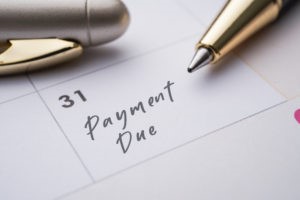As financially damaging as the mortgage collapse of 2009 was, it wasn’t nearly as widespread as what we are currently facing. There are many people in various sectors who are currently not earning a paycheck or generating income. Savings have been exhausted and paying everyday bills has become more difficult. Fortunately, the government has thrown many homeowners a lifeline and halted mortgage payments for the time being. Before you blindly assume that you do not, or should not, make your payment there are a few critical items you should know. This information could have a dramatic impact on your situation in just a few months down the road. Here are five things you should do if you can’t make your next mortgage payment.
- Call Customer Service
Don’t make the assumption that you don’t have to pay your mortgage based on what you heard on the news or saw on social media. Sure, there is a good chance that your lender is offering some kind of deferment, but it isn’t a guarantee. Even if they are offering something you need to know exactly what you are getting into. There is a big difference between a modification and a deferment. A loan modification typically will decrease your interest rate to a monthly payment you can afford. Any missed payments are tacked onto the back end of the loan. With a deferment your lender is simply allowing you to miss the next three months of payments without any negative impact on your credit. The catch is that they are going to ask for the payment in full after the 90-day period. If you cannot make the full payment your lender may start the process of foreclosure or take some other kind of adverse action. Individual lenders may handle things differently which is why it is so important to talk to customer service before making any decision.
- Construct a three-month plan
As of right now nobody really knows when things are going to change. Some states appear to be less impacted than others, but it doesn’t mean they are totally out of the woods. If you don’t think you can make your payment you should come up with a short-term three-month plan. Simply put, how do you plan on making your payment after the 90-day period? Lenders don’t have to accept partial payments or even extend the deferment period if they don’t want to. To err on the side of caution you should assume that you need the full payment in order to stave off foreclosure. What is the likelihood of your business opening in the next few weeks or your paycheck bouncing back to normal? If it does, will you have the ability to accumulate the full payment? Without a firm plan in place you run the risk of losing your home.
- Weigh Future Earnings
There are many sectors impacted by COVID-19. Everything from restaurants to commissioned sales agents have seen a severe dip in income. While the short-term goal is to protect your home from foreclosure in the next few months, you also need to think about the relatively big picture. Is your employment or business in an area that will need time to ramp back up? Will you make the same income over the next 12 months? Will you be forced to change careers and prolong the period prior to generating income? You don’t want to simply put a Band-Aid on the problem if the cut is much deeper. It may be best to take action now, before things get too much worse.
- Capital/Equity Evaluation
If you can’t make your payment and your employment situation is shaky, you should do a full capital evaluation. In addition to basic checking and savings accounts you should look into your retirement funds, pensions, stock holdings and any other type of capital accounts. Perhaps, you could draw from these penalties free or with a discounted interest rate. If you have an accountant or financial advisor it is recommended to talk to them prior to making any rash decisions. You can also explore the option of a HELOC if you have equity. HELOC rates are nearing historic lows and can provide interest only payment flexibility. That being said, they also add to total amount owed.
- Get a Cash Offer for Your Property
If you know that your employment situation may not improve for several months, it may be best to act now. Before your credit takes a fall or the real estate market dips it could be worth considering selling now. Selling now could put you in a better position to capture what equity you do have in your home and limit risk of losing your home to foreclosure if things don’t improve. Having an offer on the table would at least give you an idea of what you’d net and walk away with as a result of the sale.
Preparation is the key. Doing nothing about your situation likely will not improve it! The reality is that you most likely have more positive options than you think. Start by reaching out to customer service, taking inventory on your income, assets and employment. The quicker you are to take action the more likely you can make the best of a negative situation.


